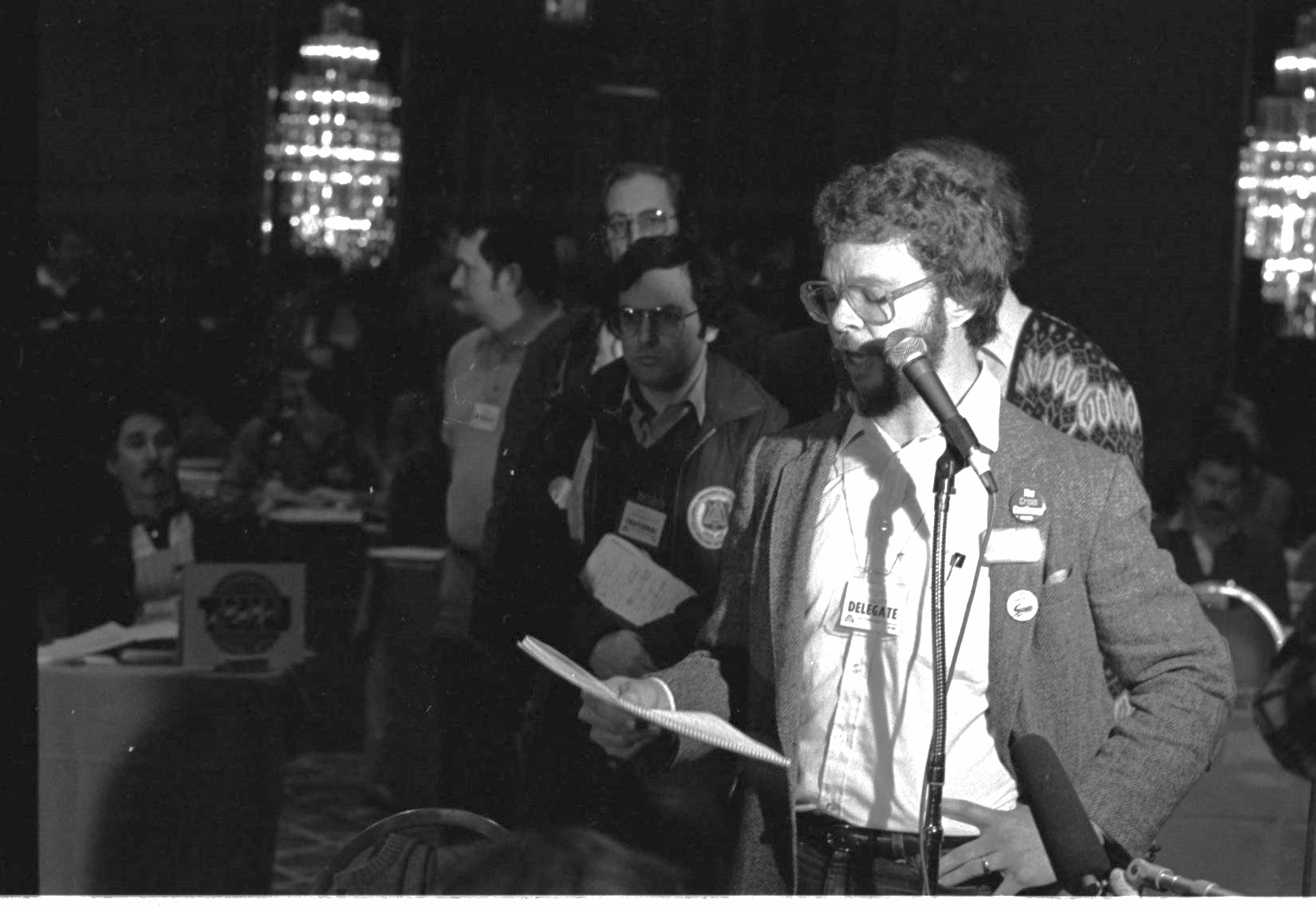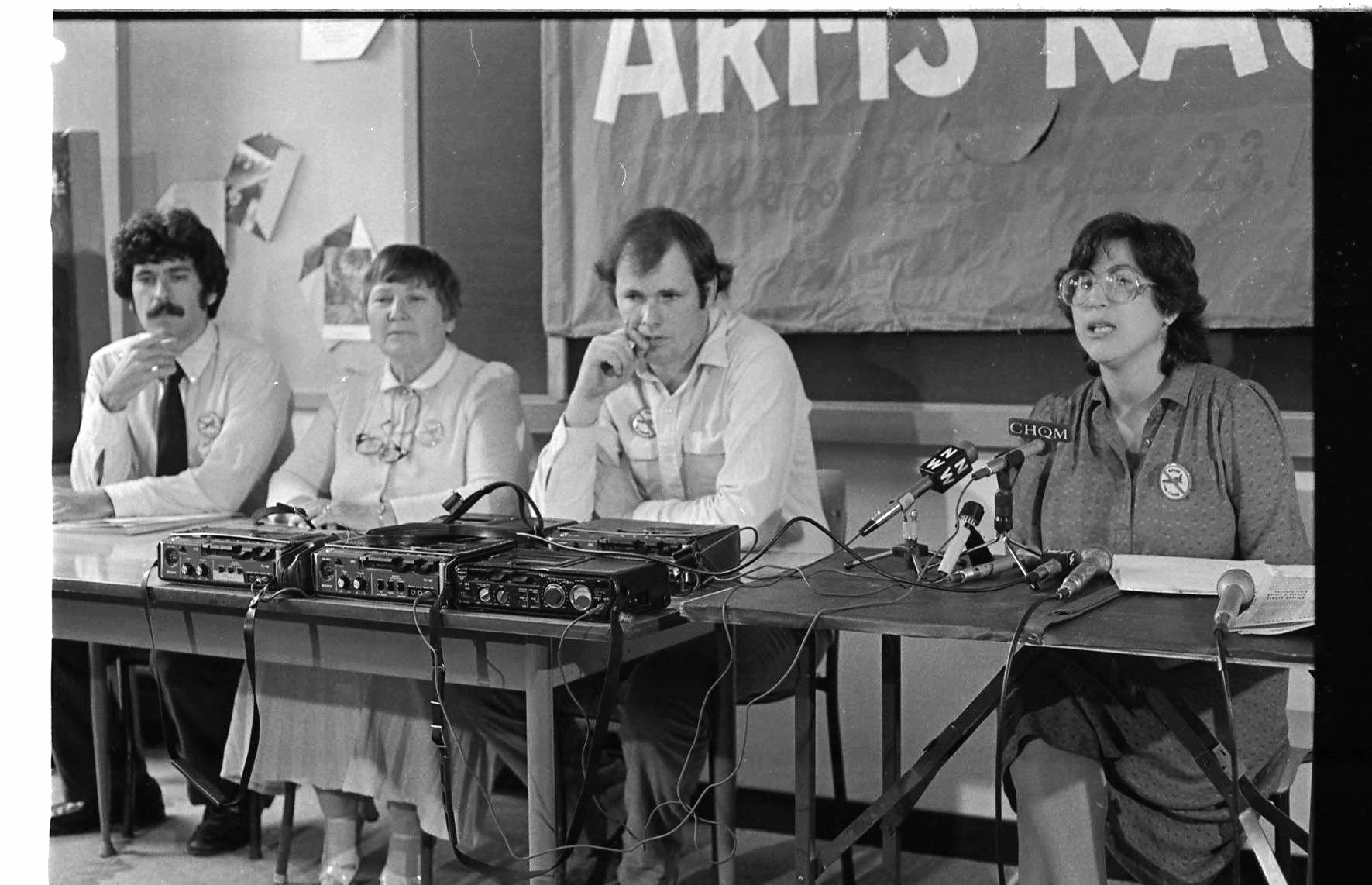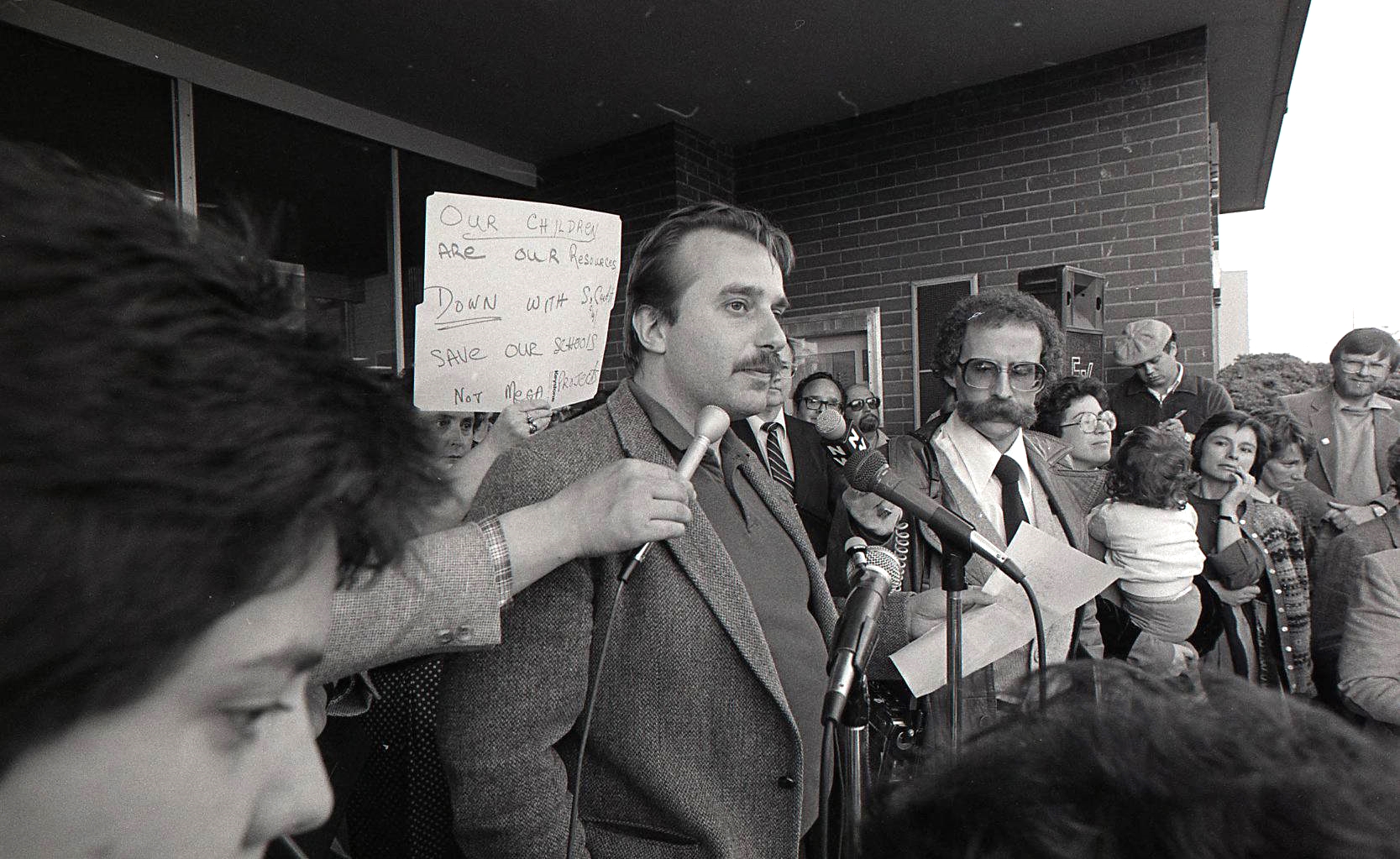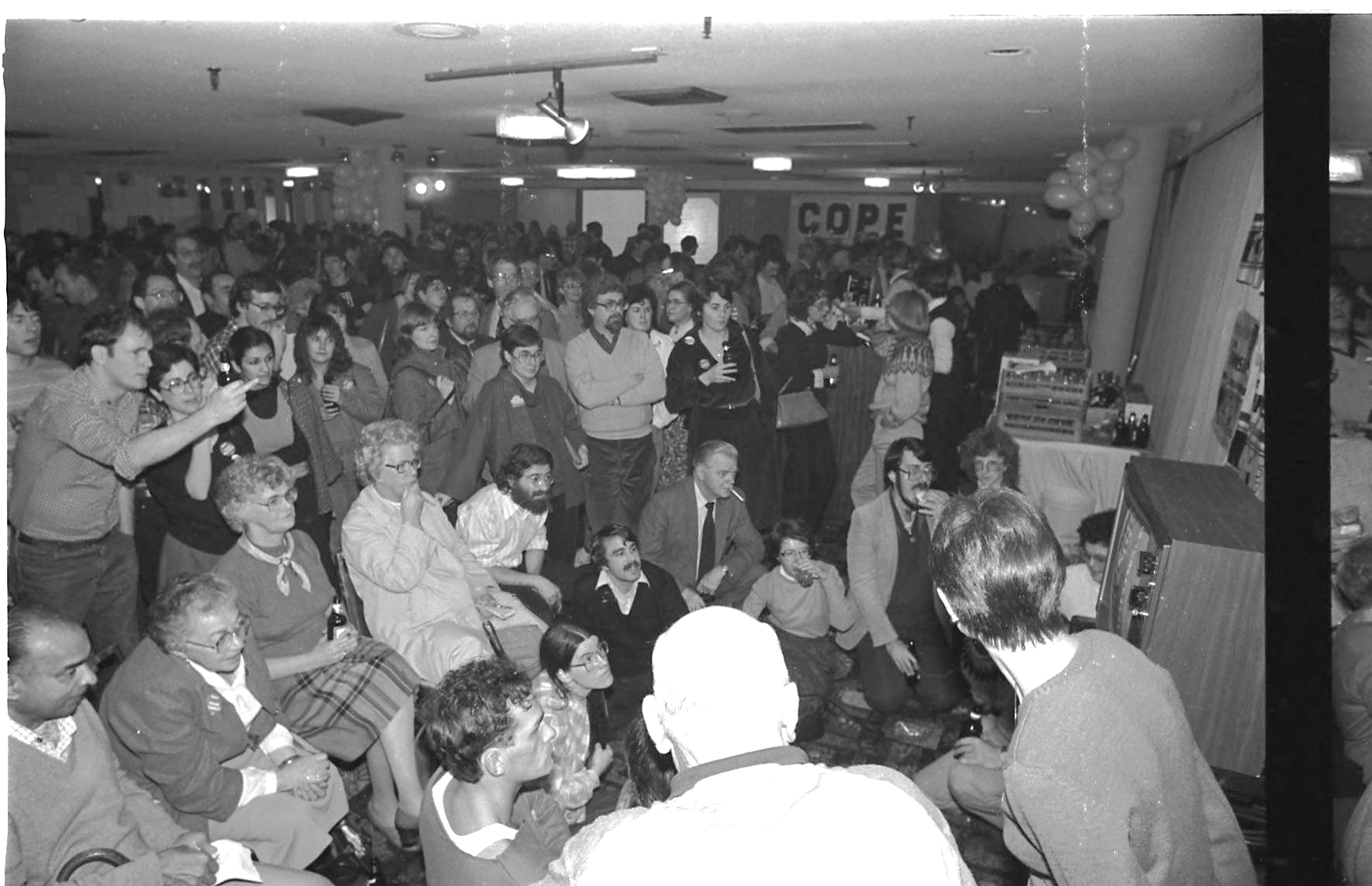Elections Canada’s Retrospective Report on the last federal election has just been released. The Report incorporates data from various post-election surveys (some of which we’ve blogged about previously) and audits, and will form the basis of Elections Canada’s recommendations regarding amendments to the Canada Elections Act. Overall, the Report emphasizes that significant changes to election procedures are necessary to keep pace with modern voting habits and to address issues that arose during the campaign.
The Report warns that action is needed now to avoid future crises:
“Given this shift and the number of years between elections, it is essential to recognize that the success of the 42nd general election is no guarantee of favourable outcomes in the future. This is not the time for complacency. In Elections Canada's estimation, federal electoral administration has reached a tipping point and action is required now. The transformation in elector behaviours and service preferences is significant, and a new baseline must be set in terms of meeting, and hopefully exceeding, electors' service needs.”
Read moreA unionized employee who has been denied benefits or coverage under an employer-sponsored plan may face a deceptively difficult decision: whether to grieve the denial against the employer, or to sue the insurance company.
In many cases the employee’s only option will be to sue the insurance company. The insurance company is not a party to the collective agreement, so grievance arbitration is not available. Usually, this means that the employee is on their own, without direct representation from the union.
Sometimes, though, an employee does have the option to grieve. If an employer is self-insured – that is, the employer itself pays the insured members’ claims – then denial of coverage is arbitrable, because the employer itself denied the coverage.
Read moreThe Red Shirt Foundation was born out of the tragic deaths of Michael John Lunn and Fred McEachern, who were shot and killed in 2014 at the Nanaimo mill where they worked by a former employee. Michael was the plant chairman for his union and was active in protecting the workers’ rights and advocating for safety at the mill. The gunman’s trial is scheduled to begin shortly.
Unlike Ontario, British Columbia does not require employers to have workplace violence policies and procedures. The Ontario occupational health and safety legislation requires employers to proactively address violence from all possible sources, including customers, employees, and domestic partners. As part of this, Ontario employers must assess the risk of workplace violence that may arise from the nature, conditions or type of work or workplace, and develop measures and procedures to control the identified risks.
Read moreOn July 29th, a couple who had been convicted of terrorism charges for planting three explosive devices on the BC legislature grounds received a stay of proceedings at the BC Supreme Court. Justice Bruce described the couple, John Nuttall, 41 and Amanda Korody, 33, as “marginalized, socially isolated, former heroin addicts dependent on methadone and welfare to subsist”.
In 2013, the Canadian Security Intelligence Agency informed the RCMP that Mr. Nuttall had tried to buy potassium nitrate which can be used to manufacture explosives. From this point on, a group of RCMP officers undertook an elaborate sting operation called “Project Souvenir” to induce the couple into committing the offence.
Read moreWe are among many British Columbians celebrating the amendment (finally!) of the BC Human Rights Code to explicitly recognize gender identity and gender expression as protected grounds.
While trans activists and their allies demanded this change, the BC Liberal government insisted for years that the change was unnecessary. The law is already clear, they said: even though the Human Rights Code doesn't explicitly say the words "gender identity and gender expression", the Tribunal and courts have decided that these grounds are nonetheless protected.
Why did trans activists keep fighting, then? Why did MLA Spencer Chandra Herbert introduce the proposed legislation 4 times in 5 years? And why does it feel like such a victory to see this change finally in place?
Read moreIf you are a union that administers benefits for your members, you will likely be interested in today’s decision from the BC Court of Appeal in a case about union-administered LTD benefits.
A group of disabled members filed a class-action lawsuit against the union after their LTD benefits were reduced. The LTD plan had been facing insolvency due to rising claims costs and insufficient premiums to cover them.
Read morePokémon Go is a hot topic at our workplace lately. Three of us have been swept up in the craze, while the other two (hint, it’s a generational thing) find the whole thing bizarre and somewhat distasteful. Sula, our office dog, has not yet declared her position on the issue.
Perhaps Pokémon Go is a hot topic at your workplace these days too. Here are some FAQs* about Pokémon Go in the workplace.
Read moreA well-crafted cross examination is like a classical sculpture, every extra bit of marble chipped away until all that is left is the essential form of David. A skilled cross-examiner asks only those questions required to make the argument and nothing more. Cross-examining effectively is just as much about what not to ask as it is about what to ask. Here are five kinds of questions that have no place in well-executed cross-examination at grievance arbitration:
Read moreIn a split decision, the Supreme Court of Canada has set out new guidelines that will dramatically change the way our courts enforce the right under section 11(b) of the Canadian Charter of Rights and Freedoms to be tried within a reasonable time.
The old rules set down in 1992 involved balancing a series of factors, including the length of the delay, the reasons, any conduct by the accused that waived portions of the waiting time, limits to institutional resources for getting cases heard, and prejudice to the accused.
In R. v Jordan, after commenting on the harmful trend toward lengthier delays, the majority set out a fixed time-frame to determine whether charges should be stayed because of violation of section 11(b).
Read moreThe Christian Labour Association (CLAC), Local 66, suffered a setback at the Labour Relations Board earlier this month. CLAC claims to be a trade union but is not recognized to be a legitimate workers’ organization by anyone within the labour movement. A recent decision by the LRB illustrates some of the reasons why this is so.
In a decision issued June 16, 2016, Re Clark Reefer Lines Ltd, a reconsideration panel of the Labour Relations Board headed by Board Chair Brent Mullin directed that the Board hold a hearing into the merits of a complaint by a member of the Christian Labourer’s Association of Canada (CLAC) Local 66 that the union had violated its duty of fair representation when it failed to represent him in his termination.
The worker alleged that when he was hired he was never told who the union was; he was not given a collective agreement and when dues were deducted there was no indication as to which union they were being forwarded.
Read moreWhen was the last time you went offline…truly offline? I’m talking about actually turning off your phones, computers, tablets, laptops, Fitbits, Apple Watches, or any of the many other ways we connect electronically.
Now, do you ever use work devices for personal reasons? Do you occasionally check Facebook, plan your next vacation, maybe do a bit of banking or search Cuteoverload for stress-relieving kitten GIF’s? (No judgement.)
Read moreElections Canada has just released voter turnout information for the 2015 federal election and the results are very interesting (and not just to election nerds like us!):
- First time voter turnout increased nationally by nearly 18 percentage points in comparison to 2011 (from 40.5% to 58.3%)
- Here in BC, first time voter turnout increased by a whopping 26 points! (from 39.4% to 65.7%)
- Voter turnout among younger people (aged 18-24) increased by 18 percentage points in comparison to 2011 (from 38.8% to 57.1%)
- In BC, 18-24 year old turnout increased by 24 points! (39.9% to 63.9%)
- There was also a 12 percentage point bump in turnout among 25-34 year old voters (from 45.1% to 57.4%)
- Again, BC outperformed the national average with an increase of 18 points (from 41.7% to 59.7%)
- Voter turnout on-reserve increased nearly 15 percentage points in comparison to 2011 (from 47.4% to 61.5%)
Read moreI have been delighted to join Allevato, Quail & Worth as a law student for the summer of 2016. The opportunity to pursue a career as a lawyer is a great privilege that I hope to never take for granted. During my first month at AQW, two of my wonderful mentors (Carmela Allevato & Jim Quail) invited me to join them to attend a segment of the HEU Summer School at UBC. We went to hear a presentation by Shakil Choudhury, author of Deep Diversity. I was so impressed by the contents of his lecture that I set out to find a copy of Deep Diversity the very next day. His research and expertise have resonated intensely with me as I have begun to experience what working in the legal profession is like.
One of the most important insights which I took away from Shakil’s book is that privilege is a blind spot for those who are receiving preferential positive treatment. We often don’t feel our privilege when we have it, even though it may seem obvious from someone who got the shorter end of the stick.
Read moreThe provincial government of British Columbia has now responded to public outrage about “shadow flipping” – realtors assigning agreements for sale of property in escalating flips, generating a chain of secret profits and multiple commissions from the single sale. From now on, shadow flipping is prohibited unless the seller has consented to it, and the profits must go back to the homeowner.
We commented about this issue back in February and demanded essentially the reforms that have now been put in place: disclosure of shadow flipping and restoring any gains to the original parties. Hmmm…. does Christy Clark read our blog?
Read morePBR is becoming very popular across North America because it significantly reduces a utility’s expensive and time-intensive reporting and regulatory work for a couple of years while incentivizing the implementation of cost efficiencies through a savings-sharing mechanism that splits the money saved between the ratepayers and the utilities’ shareholders. The regulator removes the leash and the company is set loose to operate within a set of targets and formulas.
In the end, if you are a ratepayer or a union representing utility workers operating under a PBR then these issues do affect you.
So how do you ensure your service or your members aren’t unfairly compromised? You get informed and then, you come to the table and you fight for your rights, your jobs, and your utility.
Read moreTwo years in, it’s unclear whether CASL has actually been effective at reducing spam in Canada. But the new law has created an email “chill” for many non-profit organizations – limiting their digital activities for fear of breaking the rules. CASL is still not well understood, and many organizations are unaware of, or under-informed about, the rules resulting in an overly cautious approach that can negatively impact fundraising and member engagement.
Read moreIn a decision issued on April 11, 2016, the raiding activities of the BC Nurses suffered a set-back. About 5 years ago, the then British Columbia Nurses Union was expelled from the Canadian Labour Congress and the BC Federation of Labour for its raiding campaigns against other health unions in the province. This came on the heels of BCN’s successful application at the Labour Relations Board to raid some 6500 licensed practical nurses from their traditional unions, the Hospital Employee’s Union and the BCGEU.
Unfortunately, the ultimate sanction of expulsion from the central labour body has not dissuaded the BCN from its raiding activities. Its latest efforts have been aimed at signing up psychologists and psychometrists who are members of the Health Sciences Association or the Professional Employees Association. BCN applied to the Labour Relations Board to be certified as their representative in late 2015.
Let’s hope that with this setback, the leadership of the BCN will decide to redirect their efforts and resources towards advocating for better healthcare and better working conditions for their members and all healthcare workers, rather than attacking other unions. And let’s hope that nurses themselves will call upon their leadership to do just that.
Read more
British Columbia Chief Justice Hinkson has rejected the provincial government’s application for an injunction to shut down the homeless tent city on the lawn of the Victoria court house. He made several rulings that will be important in future trespassing injunction cases. The decision is posted here. It represents a triumph of empathy for people who live in poverty and are given no reasonable alternatives but to be chased from place to place.
Perhaps most important in its legal impact, he rejected the province’s argument that the normal hurdles an injunction application has to clear don’t apply where interference with rights to land are involved. Employers often raise this argument in applications for injunctions to prohibit picketing on their property by employees. Mr. Justice Hinkson ruled that the normal legal rules apply where Charter rights are in issue, even if the applicant is a landowner seeking to remove alleged trespassers.
Read more












